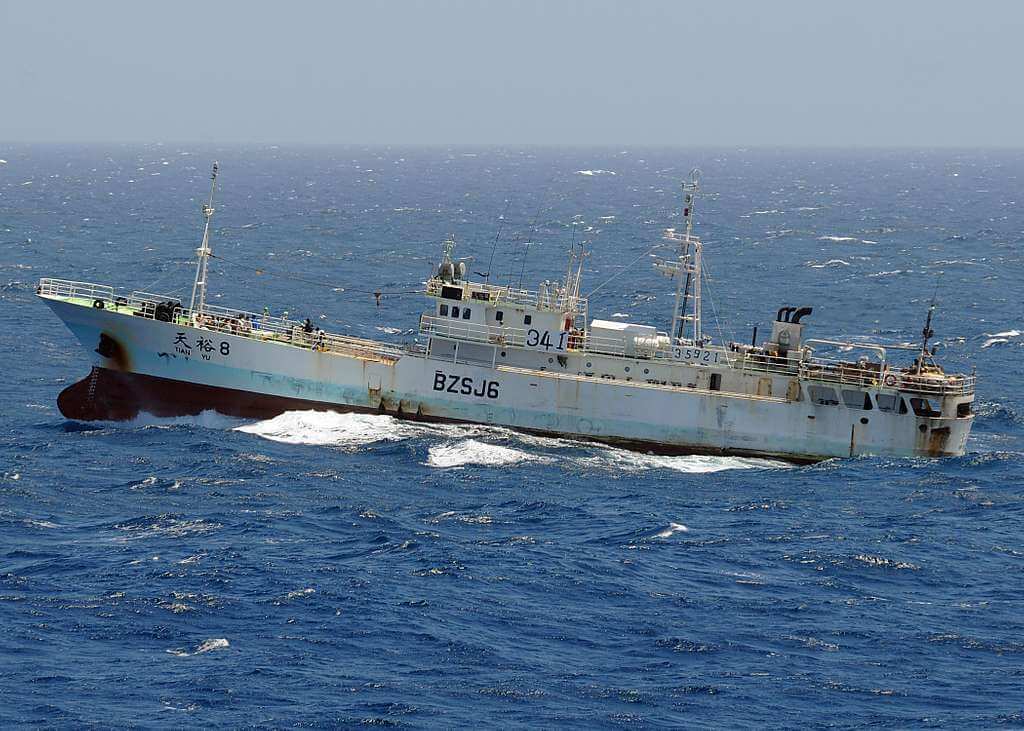Peru loses $300 million to illegal fishing by Chinese fleets
Photo: Picryl.
The National Society of Artisanal Fisheries of Peru (SONAPESCAL) has warned of a significant drop in squid exports, which has caused a loss of US$300 million for the country.
This situation is mainly attributed to illegal fishing by Chinese fleets that have operated without authorisation along the Peruvian coast. According to the Ministry of Production (Produce), squid catches in the first half of 2024 were only 140,000 tonnes, representing a 70% decrease compared to the same period last year. This drop has had a negative impact on formal employment in the fishing sector.
Henry Juárez, representative of the Artisanal Fishermen’s Association, described 2024 as “the worst year for the fishing industry for direct human consumption so far this century”.
Juarez noted that the activities of Chinese vessels are not only limited to fishing in permitted areas, but have also repeatedly entered Peruvian jurisdictional waters without authorisation, a practice that has intensified as the Chinese fishing fleet expands.
SONAPESCAL has pointed out that these infractions have been occurring for years, with Chinese vessels frequently turning off their satellite equipment to evade tracking from Peruvian authorities and operate illegally. This behaviour not only threatens marine ecosystems, but also affects the local economy, as many artisanal fishermen depend on squid fishing for their daily livelihood.
In 2020, the Peruvian government issued a decree requiring all foreign vessels to use a satellite device to monitor their activities and deter irregular behavior.
However, since May 2023, Peruvian authorities have relaxed these restrictions, allowing Chinese fleets to operate without the tracking device, which has facilitated the entry of these vessels into Peruvian waters without complying with local regulations. Despite the minimal fines imposed, the illegal actions have continued, and China has considerably reduced its operating costs.
Peru’s Minister of Production, Sergio Gonzalez, announced in July that a new rule would be issued to tighten control over Chinese fleets, but as of yet it has not been implemented. During August, at least nine vessels with a history of manipulation of their positioning devices and labour abuses have illegally entered Peruvian waters, mainly in the port of Callao.
Juarez noted that since March, China has intensified its fishing activities along Peru’s 200-mile maritime border, increasing the incidence of illegal fishing.
Although measures have been taken to prevent these practices, Chinese vessels continue to fish near the border, apparently with the intention of exploiting resources within Peruvian waters. These actions not only violate international maritime agreements, but also threaten the sustainability of fisheries resources in the region.
Main source:

